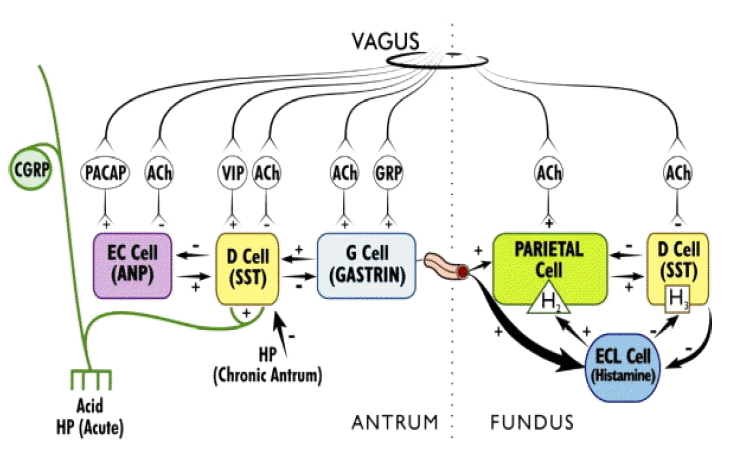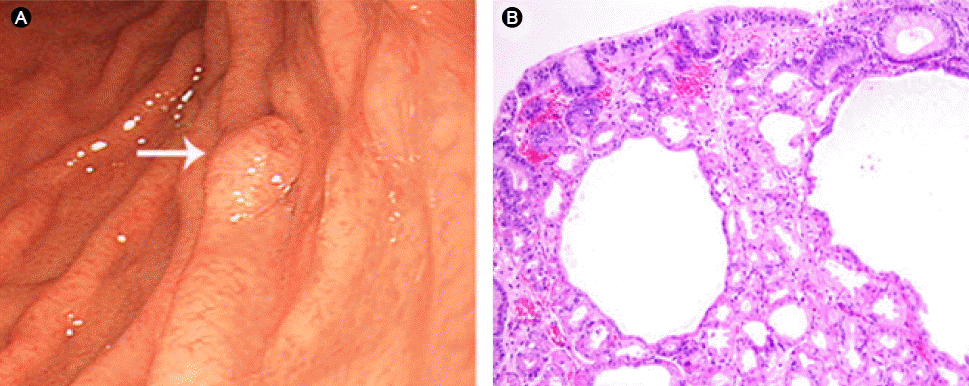1. Raghunath AS, O'Morain C, McLoughlin RC. Review article: the long-term use of proton-pump inhibitors. Aliment Pharmacol Ther 2005;22(Suppl 1):S55–S63.
[Article] [PubMed] 2. Thomson AB, Sauve MD, Kassam N, Kamitakahara H. Safety of the long-term use of proton pump inhibitors. World J Gastroenterol 2010;16:2323–2330.
[Article] [PubMed] [PMC] 3. Blankenhorn K, Lipson D. Business watch: 2001 in review: despite economic challenges, pharmaceutical industry still maintains steady growth. Med Mark Med 2002;37:47–62.
4. Benet LZ, Zech K. Pharmacokinetics: a relevant factor for the choice of a drug? Aliment Pharmacol Ther 1994;8(Suppl 1):S25–S32.
[Article] [PubMed] 5. Goudie BM, McKenzie PE, Cipriano J, Griffin EM, Murray FE. Repeat prescribing of ulcer healing drugs in general practice: prevalence and underlying diagnosis. Aliment Pharmacol Ther 1996;10:147–150.
[Article] [PubMed] 6. Boutet R, Wilcock M, MacKenzie I. Survey on repeat prescribing for acid suppression drugs in primary care in Cornwall and the Isles of Scilly. Aliment Pharmacol Ther 1999;13:813–817.
[Article] [PubMed] 7. Ryder SD, O'Reilly S, Miller RJ, Ross J, Jacyna MR, Levi AJ. Long term acid suppressing treatment in general practice. BMJ 1994;308:827–830.
[Article] [PubMed] [PMC] 8. Hurenkamp GJ, Grundmeyer HG, Bindels PJ, Tytgat GN. How do primary care physicians use long-term acid suppressant drugs? A population-based analysis of Dutch general practices. J Fam Pract 2002;51:241–245.
[PubMed] 9. Rubin GP, Contractor B, Bramble MG. The use of long-term acid-suppression therapy. Br J Clin Pract 1995;49:119–120.
[PubMed] 10. Hungin AP, Rubin GP, O’Flanagan H. Long-term prescribing of proton pump inhibitors in general practice. Br J Gen Pract 1999;49:451–453.
[PubMed] [PMC] 11. Raghunath AS, Hungin APS. Long-term prescribing of proton pump inhibitors in primary care: a cross-sectional survey. Gut 2004;53(Suppl 111):A24.
12. Prach AT, McGilchrist MM, Murray FE, Johnston DA, MacDonald TM. Prescription of acid-suppressing drugs in relation to endoscopic diagnosis: a record-linkage study. Aliment Pharmacol Ther 1999;13:397–405.
[Article] [PubMed] 13. Majumdar SR, Soumerai SB, Farraye FA, et al. Chronic acid-related disorders are common and underinvestigated. Am J Gastroenterol 2003;98:2409–2414.
[Article] [PubMed] 14. McCarthy DM. Adverse effects of proton pump inhibitor drugs: clues and conclusions. Curr Opin Gastroenterol 2010;26:624–631.
[Article] [PubMed] 15. Kim BW, Lee BI, Kim HK, et al. Influence of long-term gastric acid suppression therapy on the expression of serum gastrin, chromogranin A, and ghrelin. Korean J Gastroenterol 2009;53:84–89.
[Article] [PubMed] 16. Attard TM, Cuffari C, Tajouri T, et al. Multicenter experience with upper gastrointestinal polyps in pediatric patients with familial adenomatous polyposis. Am J Gastroenterol 2004;99:681–686.
[Article] [PubMed] 17. Bertoni G, Sassatelli R, Nigrisoli E, et al. Dysplastic changes in gastric fundic gland polyps of patients with familial adenomatous polyposis. Ital J Gastroenterol Hepatol 1999;31:192–197.
[PubMed] 18. Jalving M, Koornstra JJ, Wesseling J, Boezen HM, DE Jong S, Kleibeuker JH. Increased risk of fundic gland polyps during long-term proton pump inhibitor therapy. Aliment Pharmacol Ther 2006;24:1341–1348.
[Article] [PubMed] 19. Carmack SW, Genta RM, Graham DY, Lauwers GY. Management of gastric polyps: a pathology-based guide for gastroenterologists. Nat Rev Gastroenterol Hepatol 2009;6:331–341.
[Article] [PubMed] 20. Jalving M, Koornstra JJ, Götz JM, et al. High-grade dysplasia in sporadic fundic gland polyps: a case report and review of the literature. Eur J Gastroenterol Hepatol 2003;15:1229–1233.
[Article] [PubMed] 21. Abraham SC, Nobukawa B, Giardiello FM, Hamilton SR, Wu TT. Sporadic fundic gland polyps: common gastric polyps arising through activating mutations in the beta-catenin gene. Am J Pathol 2001;158:1005–1010.
[Article] [PubMed] [PMC] 22. Abraham SC, Nobukawa B, Giardiello FM, Hamilton SR, Wu TT. Fundic gland polyps in familial adenomatous polyposis: neoplasms with frequent somatic adenomatous polyposis coli gene alterations. Am J Pathol 2000;157:747–754.
[Article] [PubMed] [PMC] 23. el-Zimaity HM, Jackson FW, Graham DY. Fundic gland polyps developing during omeprazole therapy. Am J Gastroenterol 1997;92:1858–1860.
[PubMed] 24. Cats A, Schenk BE, Bloemena E, et al. Parietal cell protrusions and fundic gland cysts during omeprazole maintenance treatment. Hum Pathol 2000;31:684–690.
[Article] [PubMed] 25. Freeman HJ. Proton pump inhibitors and an emerging epidemic of gastric fundic gland polyposis. World J Gastroenterol 2008;14:1318–1320.
[Article] [PubMed] [PMC] 26. Fossmark R, Jianu CS, Martinsen TC, Qvigstad G, Syversen U, Waldum HL. Serum gastrin and chromogranin A levels in patients with fundic gland polyps caused by long-term proton-pump inhibition. Scand J Gastroenterol 2008;43:20–24.
[Article] [PubMed] 27. Zelter A, Fernández JL, Bilder C, et al. Fundic gland polyps and association with proton pump inhibitor intake: a prospective study in 1,780 endoscopies. Dig Dis Sci 2011;56:1743–1748.
[Article] [PubMed] 28. Kim JS, Chae HS, Kim HK, et al. Spontaneous resolution of multiple fundic gland polyps after cessation of treatment with omeprazole. Korean J Gastroenterol 2008;51:305–308.
[PubMed] 29. Kazantsev GB, Schwesinger WH, Heim-Hall J. Spontaneous resolution of multiple fundic gland polyps after cessation of treatment with lansoprazole and Nissen fundoplication: a case report. Gastrointest Endosc 2002;55:600–602.
[Article] [PubMed] 30. Sanduleanu S, Stridsberg M, Jonkers D, et al. Serum gastrin and chromogranin A during medium-and long-term acid suppressive therapy: a case-control study. Aliment Pharmacol Ther 1999;13:145–153.
[Article] [PubMed] 31. Creutzfeldt W. The achlorhydria-carcinoid sequence: role of gastrin. Digestion 1988;39:61–79.
[Article] [PubMed] 32. Håkanson R, Sundler F. Proposed mechanism of induction of gastric carcinoids: the gastrin hypothesis. Eur J Clin Invest 1990;20(Suppl 1):S65–S71.
[Article] [PubMed] 33. Håkanson R, Chen D, Tielemans Y, et al. ECL cells: biology and pathobiology. Digestion 1994;55(Suppl 3):S38–S45.
[PubMed] 34. Tielemans Y, Håkanson R, Sundler F, Willems G. Proliferation of enterochromaffinlike cells in omeprazole-treated hypergastrinemic rats. Gastroenterology 1989;96:723–729.
[PubMed] 35. Koop H, Klein M, Arnold R. Serum gastrin levels during long-term omeprazole treatment. Aliment Pharmacol Ther 1990;4:131–138.
[Article] [PubMed] 36. Modlin IM, Lye KD, Kidd M. A 50-year analysis of 562 gastric carcinoids: small tumor or larger problem? Am J Gastroenterol 2004;99:23–32.
[Article] [PubMed] 37. Hodgson N, Koniaris LG, Livingstone AS, Franceschi D. Gastric carcinoids: a temporal increase with proton pump introduction. Surg Endosc 2005;19:1610–1612.
[Article] [PubMed] 38. Waldum HL, Gustafsson B, Fossmark R, Qvigstad G. Antiulcer drugs and gastric cancer. Dig Dis Sci 2005;50(Suppl 1):S39–S44.
[Article] 39. Thomson AB, Sauve MD, Kassam N, Kamitakahara H. Safety of the long-term use of proton pump inhibitors. World J Gastroenterol 2010;16:2323–2330.
[Article] [PubMed] [PMC] 40. Diebold MD, Richardson S, Duchateau A, et al. Factors influencing corpus argyrophil cell density and hyperplasia in reflux esophagitis patients treated with antisecretory drugs and controls. Dig Dis Sci 1998;43:1629–1635.
[PubMed] 41. Lundell L, Havu N, Miettinen P, et al. Changes of gastric mucosal architecture during long-term omeprazole therapy: results of a randomized clinical trial. Aliment Pharmacol Ther 2006;23:639–647.
[Article] [PubMed] 42. Lamberts R, Brunner G, Solcia E. Effects of very long (up to 10 years) proton pump blockade on human gastric mucosa. Digestion 2001;64:205–213.
[Article] [PubMed] 43. Moayyedi P, Wason C, Peacock R, et al. Changing patterns of Helicobacter pylori gastritis in long-standing acid suppression. Helicobacter 2000;5:206–214.
[Article] [PubMed] 44. McColl KE. Helicobacter pylori infection and long term proton pump inhibitor therapy. Gut 2004;53:5–7.
[Article] [PubMed] [PMC] 45. Kuipers EJ, Lundell L, Klinkenberg-Knol EC, et al. Atrophic gastritis and Helicobacter pylori infection in patients with reflux esophagitis treated with omeprazole or fundoplication. N Engl J Med 1996;334:1018–1022.
[Article] [PubMed] [PMC] 46. Uemura N, Okamoto S, Yamamoto S, et al. Helicobacter pylori infection and the development of gastric cancer. N Engl J Med 2001;345:784–789.
[Article] [PubMed] 47. Berstad AE, Hatlebakk JG, Maartmann-Moe H, Berstad A, Brandtzag P. Helicobacter pylori gastritis and epithelial cell proliferation in patients with reflux oesophagitis after treatment with lansoprazole. Gut 1997;41:740–747.
[Article] [PubMed] [PMC] 48. Eissele R, Brunner G, Simon B, Solcia E, Arnold R. Gastric mucosa during treatment with lansoprazole: Helicobacter pylori is a risk factor for argyrophil cell hyperplasia. Gastroenterology 1997;112:707–717.
[Article] [PubMed] 49. Singh P, Indaram A, Greenberg R, Visvalingam V, Bank S. Long term omeprazole therapy for reflux esophagitis:follow-up in serum gastrin levels, EC cell hyperplasia and neoplasia. World J Gastroenterol 2000;6:789–792.
[PubMed] 50. Geboes K, Dekker W, Mulder CJ, Nusteling K. Long-term lansoprazole treatment for gastro-oesophageal reflux disease: clinical efficacy and influence on gastric mucosa. Aliment Pharmacol Ther 2001;15:1819–1826.
[Article] [PubMed] 51. Uemura N, Okamoto S, Yamamoto S, et al. Changes in Helicobacter pyloriinduced gastritis in the antrum and corpus during long-term acid-suppressive treatment in Japan. Aliment Pharmacol Ther 2000;14:1345–1352.
[Article] [PubMed] 52. Kuipers EJ, Nelis GF, Klinkenberg-Knol EC, et al. Cure of Helicobacter pylori infection in patients with reflux oesophagitis treated with long term omeprazole reverses gastritis without exacerbation of reflux disease: results of a randomized controlled trial. Gut 2004;53:12–20.
[Article] [PubMed] [PMC]


